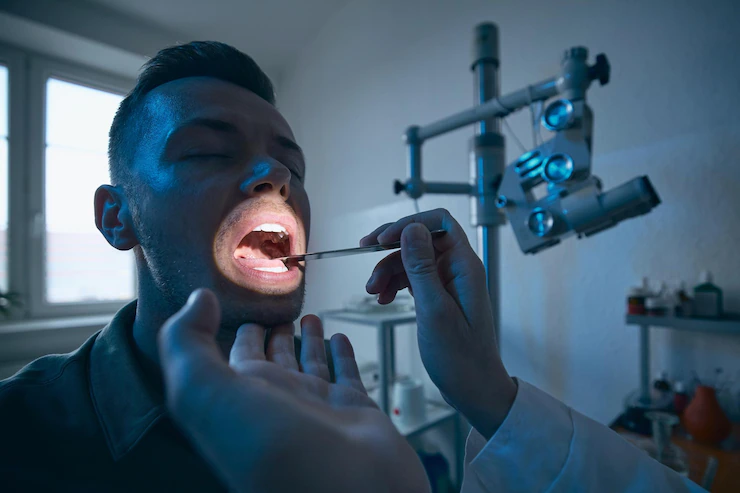Vocal fatigue is one of the most common problems singers face.
While you may be able to sing through some of your most demanding performances, there’s a good chance you’ll need a vocal break before the next big show. For every singer, this time is different. This is the reason many of the singers are asking how long should i be on vocal rest.
You must take care of your voice and rest it correctly. Resting is an important aspect of your singing training. Many famous singers such as Adele, Celine Dion, and Julie Andrews have suffered from vocal trauma.
Most vocal injuries are caused by singing too much, without taking enough breaks, using too much vocal fry, or belting. Many well-trained singers are developing problems from singing correctly too often, and overcoming single vocal trauma is a serious activity. Hence if you leave this issue untouched, it can be a career-ending injury.
Whether you have an upcoming gig or just want to take a vocal rest from a particularly grueling rehearsal, you’re in luck! We’ve got all the info you need about vocal rest, including tips on getting it and what to expect during your recovery.
What Is Vocal Fatigue?
If you’ve ever experienced the feeling that your voice is tired during a performance, you’ve likely had vocal fatigue. It’s a natural response to the stress of singing, and it’s usually temporary.
There are lots of different reasons for vocal rest why you may want to take a vocal break, but here are some of the most common ones:

1. You Feel Tired
You’re working hard to move your vocal cords when you start singing. After a while, the physical effort of singing can begin to get to you. You might feel exhausted or even lightheaded. This is called “vocal fatigue”, and it happens to everyone eventually.
Vocal fatigue occurs because your voice is an instrument you use to express yourself. Singing uses all of your body in ways that other activities don’t.
When you sing, your face muscles tense, your throat muscles tighten, and your jaw muscles clench. These movements create tension in your neck and shoulders, leading to headaches and sore throats. Singing takes a lot out of you, so if you notice that you’re feeling exhausted or lightheaded after singing, it could be a sign that your voice needs some vocal rest TLC.
2. You’re Having Trouble Producing The Notes
It’s normal for your voice to lose some strength after a while. This is especially true if you’re constantly performing at high volumes or over extended periods. You may need a break to let your voice rest and recover.
Do you know how long Justin Timberlake vocal rest time going on.? He injured his vocal cords, and for almost ten days, he could not speak, and his vocal test was going on.
How often should you take a break? The frequency you take breaks will depend on how often you perform and how much volume you use. If you perform every day, you should take a break at least once. It’s also essential to take a break at the end of each performance. If you perform once or twice a week, you can probably take a break once every two or three days.
3. You’re Losing Your Range
You’re naturally using up some of your vocal rest range as you continue to sing. This means that the higher notes will be harder to hit, and the lower notes will be harder to hit. It’s essential to take a break now and then so that you don’t lose your ability to hit notes.
You should ensure a backup plan if your voice starts to give out. If you’re in a live performance or you’re singing on stage, you’ll need to be able to go back into your pre-recorded song. It’s also imperative to practice your backup plan if you’re going to be singing at a karaoke bar or if you’re going to be doing covers.
4. You Feel Like You’re Running Out Of Breath
Your vocal cords are constantly working to produce the vocal rest and notes you sing. They have to do this while you’re breathing in and out. After a while, your lungs may start to get tired. As a result, you may have trouble hitting notes at the ends of your range. A vocal break allows you to catch your breath and recharge your lungs.
Research has found that taking a vocal break can be an effective way to improve your singing voice.
5. You’re Worried About Your Performance
While you’re out taking a vocal rest, you may notice that you’re getting more nervous. This is perfectly normal. However, it’s important to remember that your nerves won’t affect how well you perform once you get back on stage.
When you return from a vocal break, your voice will be in the same state as when you left it. You may need to warm up your agent before you sing again. However, this doesn’t mean you need to do all the exercises you did before leaving for the break. In fact, you should be able to just jump right back into singing. Once you start warming up and warming down, you’ll be fine. Just remember to take breaks between sets of songs so your voice can recover.

Wrapping It Up:
There are many other reasons you may want to take a vocal break. However, the most important thing to remember is that you should only take a vocal rest if you need to. You want to be sure you’re ready to go when you get back on stage. So what is your opinion about vocal rest? You can share your opinion through the comment section.
Additionals:
- Smooth Discharge before Period
- All You Need To Know About Bark Collar
- 5 Ways To Use Medicinal Mushroom Extracts






















